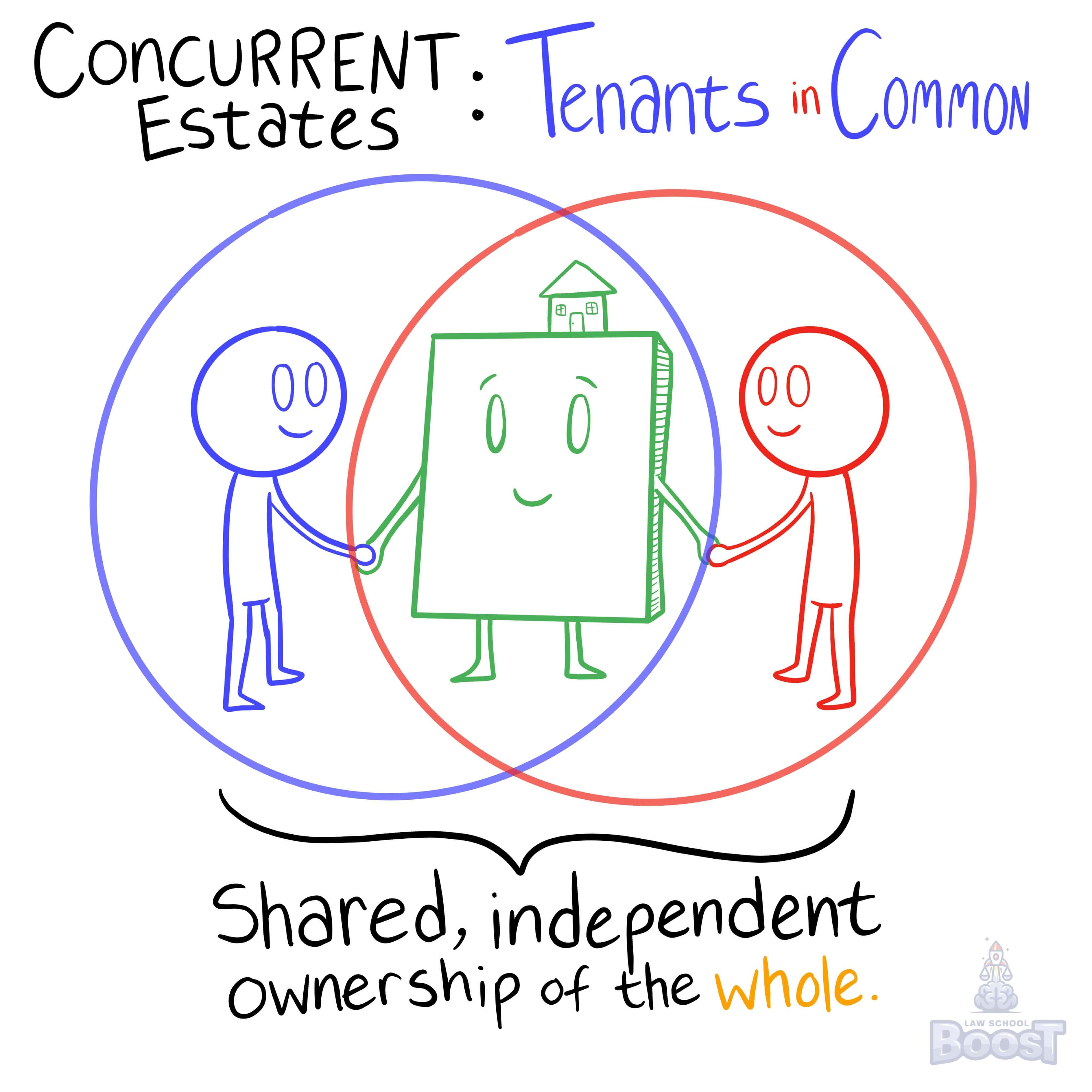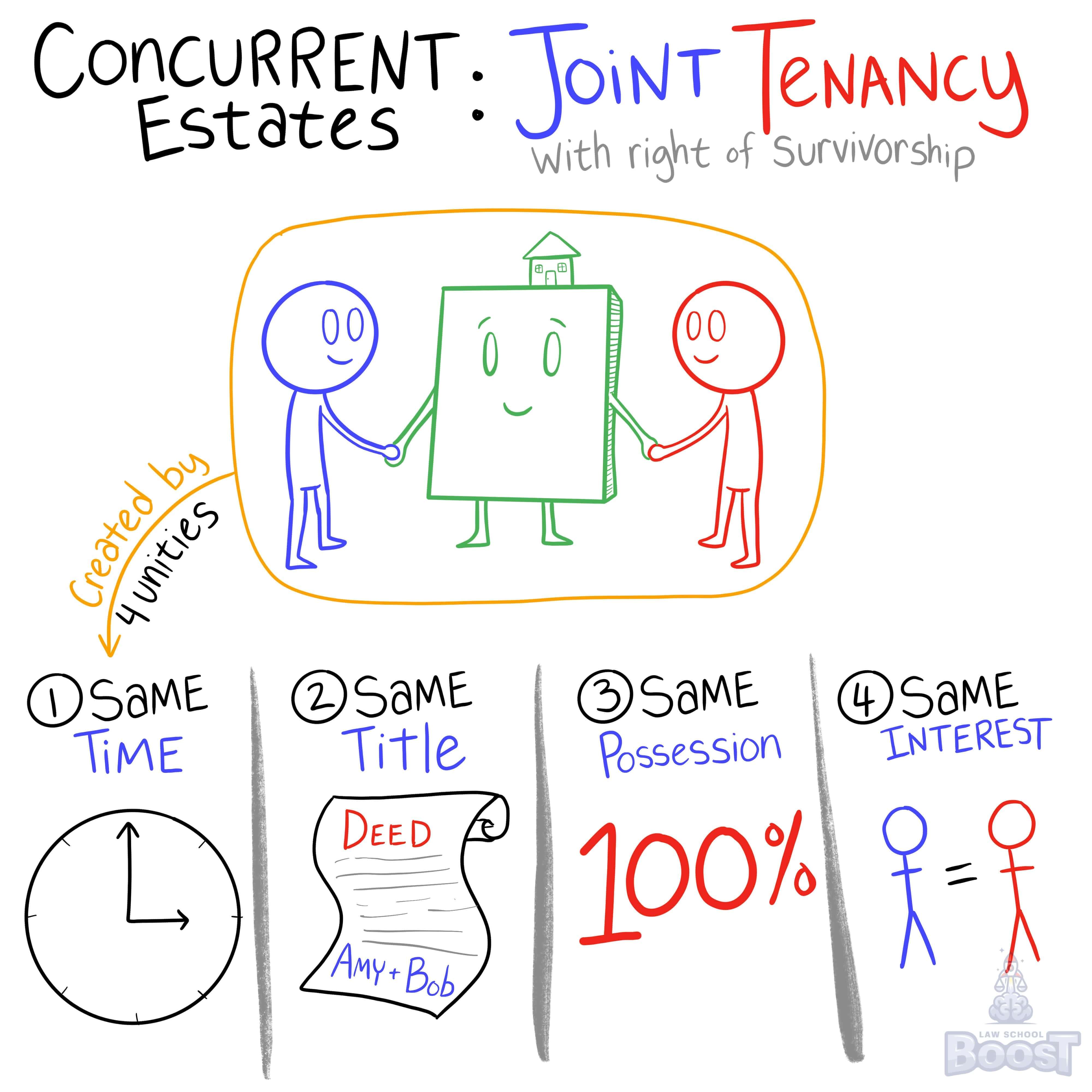😀
Real Property • Concurrent Estates
PROP#047
Legal Definition
Concurrent estates are those that are either owned or possessed by two or more individuals simultaneously, all of whom have the equal right of possession and enjoyment of the land.
Plain English Explanation
A piece of land is like a sandbox. Sometimes, one person owns the sandbox all by themselves. They have the sole and exclusive right to enjoy that sandbox, rent the sandbox out, sell the sandbox, etc.
But sometimes sandboxes have to be shared. A concurrent estate occurs when more than one person have the equal right to possess and enjoy the sandbox. They are forced to share it simply because neither of them have a greater authority over the other to boss them around or restrict how they can play in the sandbox.
In other cards, we will discuss specific, commonly tested examples of concurrent estates.
But sometimes sandboxes have to be shared. A concurrent estate occurs when more than one person have the equal right to possess and enjoy the sandbox. They are forced to share it simply because neither of them have a greater authority over the other to boss them around or restrict how they can play in the sandbox.
In other cards, we will discuss specific, commonly tested examples of concurrent estates.
Visual Aids


Related Concepts
In assessing the rights and duties of co-tenants, are encumbrances allowed?
In assessing the rights and duties of co-tenants, what are rents and profits?
In assessing the rights and duties of co-tenants, what is a judicial partition?
In assessing the rights and duties of co-tenants, what is contribution?
In assessing the rights and duties of co-tenants, what is possession?
What are the rights and duties of co-tenants?
What effect does a testamentary disposition have on a joint tenancy with right of survivorship?
What is a tenancy by the entirety and how is it severed?
What is a tenancy in common?
What is required to establish a joint tenancy with right of survivorship?
What is the result of a joint tenancy that is severed?
Which type of transactions may not result in severance of a joint tenancy?


